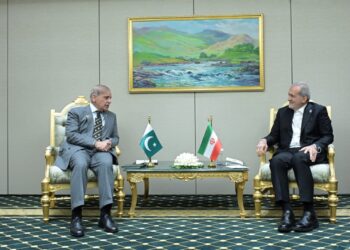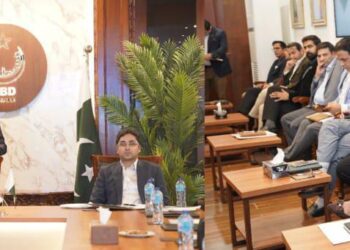Nazriya-e-Imran, Imran Khan’s ideology, continues to inspire a movement for justice, humanity, and national self-reliance in Pakistan.
Imran Khan’s Ideology:
Pakistan Tehreek-e-Insaf (PTI) founder and former prime minister Imran Khan is more than just a political figure. He symbolizes a movement and an ideology that upholds humanity, justice, and national pride. His goal is to make Pakistan a real welfare state where everyone has access to their fundamental rights, justice and equality are upheld, and corruption is eliminated.
For millions of his followers, this ideology, often called Nazriya-e-Imran, is a philosophy of change rather than merely a political party. This concept is still powerful and motivates individuals to struggle for a better Pakistan despite political obstacles, disputes, and hostility.
Path of Imran Khan from Cricket to Politics:
Imran Khan has a unique path to becoming a politician. He originally became well-known throughout the world as a cricket icon after guiding Pakistan to a historic victory in the 1992 Cricket World Cup. But rather than retiring to a comfortable life, he made the difficult decision to serve his country differently.
Philanthropy was his first significant move toward public duty. Motivated by his mother’s fight with cancer, he constructed Shaukat Khanum Memorial Cancer Hospital, Pakistan’s first free cancer treatment facility. He later established Namal University, which provides rural students with high-quality education.
These humanitarian efforts won the hearts of many people, proving that Imran Khan was not just about words but actions. This built the foundation of his political ideology, which later shaped his party, PTI.
Establishment of the PTI:
Imran Khan established the Pakistan Tehreek-e-Insaf (PTI) in 1996 with the specific goal of restoring equity and justice to Pakistan’s political system. At the time, mainstream politicians did not take PTI seriously. But as the years went by, his message began to resonate with the general public, particularly young people.
PTI’s ideology is built on three key pillars:
- Justice (Insaf): A legal system where the law applies equally to the rich and poor.
- Humanity: A welfare state where every citizen has access to healthcare, education, and employment.
- Self-Esteem: A strong and independent Pakistan that does not rely on foreign aid.
These ideas became the core of Nazriya-e-Imran, inspiring people to join a movement for change.
Core Tenets of Imran Khan’s Ideology:
Justice and Rule of Law:
One of Imran Khan’s biggest promises has always been justice for all. He believes that corruption is the root cause of Pakistan’s problems and that no country can progress without a fair legal system.
- He has always emphasized judicial reforms to ensure that even the most powerful are held accountable.
- His government introduced the Ehsas Program, aimed at helping the poor and marginalized through financial assistance and health coverage.
- He often spoke about following the model of Riyasat-e-Madina (State of Madina), where justice and fairness were the foundation of society.
Humanity and Welfare:
Imran Khan has repeatedly stated that Pakistan should be a welfare state a country where the government cares for its people. He has worked towards:
- Health & Education: Expanding Shaukat Khanum hospitals and founding Namal University to provide world-class education.
- Ehsaas Program: Aimed at helping the underprivileged, providing financial aid, shelter, and food to those in need.
- Insaf Sehat Card: Offering free medical treatment to millions of Pakistanis. These initiatives reflect his belief in humanity, where no one should be left behind.
Self-Esteem and Sovereignty:
One of the strongest parts of Nazriya-e-Imran is the idea of self-reliance. Imran Khan has always opposed foreign intervention in Pakistan’s internal matters.
- He has consistently spoken against taking loans from the IMF and becoming dependent on foreign powers.
- His government worked towards strengthening Pakistan’s economy by promoting local industries and exports.
- He openly criticized foreign interference in Pakistan’s policies, calling for a more independent approach to governance. For his supporters, this idea of “Azaad Pakistan” (Free Pakistan) is a crucial part of his ideology.
Challenges:
Despite his popularity, Imran Khan’s ideology has faced numerous challenges:
- Political Opposition: His strong stance against corruption has made him a target of political rivals.
- Economic Struggles: His government faced economic difficulties, with inflation and job crises causing concern.
- Judicial and Media Battles: He has faced legal cases and media restrictions, making it harder to spread his message.
- Government Removal: His removal from the Prime Minister’s office in 2022 led to mass protests and accusations of a foreign-backed conspiracy.
Despite these setbacks, his support base remains strong. His followers believe that his ideology is greater than any political seat.
Unstoppable Movement:
Even after facing disqualification, imprisonment, and political setbacks, Nazriya-e-Imran has only grown stronger. His supporters continue to
- Organize mass protests demanding fair elections and justice.
- Use social media to spread his message.
- Advocate for a corruption-free Pakistan.
Many believe that even if Imran Khan is not in power, his ideology will live on. The younger generation, inspired by his vision, continues to fight for change.
Future of Ideology of Imran:
Imran Khan’s ideology is not just about one person or one political party. It represents a dream of a better Pakistan, a country where justice prevails, every citizen is treated with dignity, and national sovereignty is protected.
Despite the challenges and criticisms, his vision continues to inspire millions. Whether in government or outside of it, Nazriya-e-Imran will remain a guiding force for those who believe in a fair, just, and prosperous Pakistan. For his supporters, the message is clear:
“Imran Khan may face difficulties, but his ideology will never fade away.”
Conclusion:
Nazriya-e-Imran, the ideology of Imran Khan, is more than just politics. It is a vision of self-reliance, humanity, and justice. Millions of people are still inspired by his movement despite political obstacles. Future generations will continue to be guided by his vision of an independent and just Pakistan, whether he is in power or not.

























